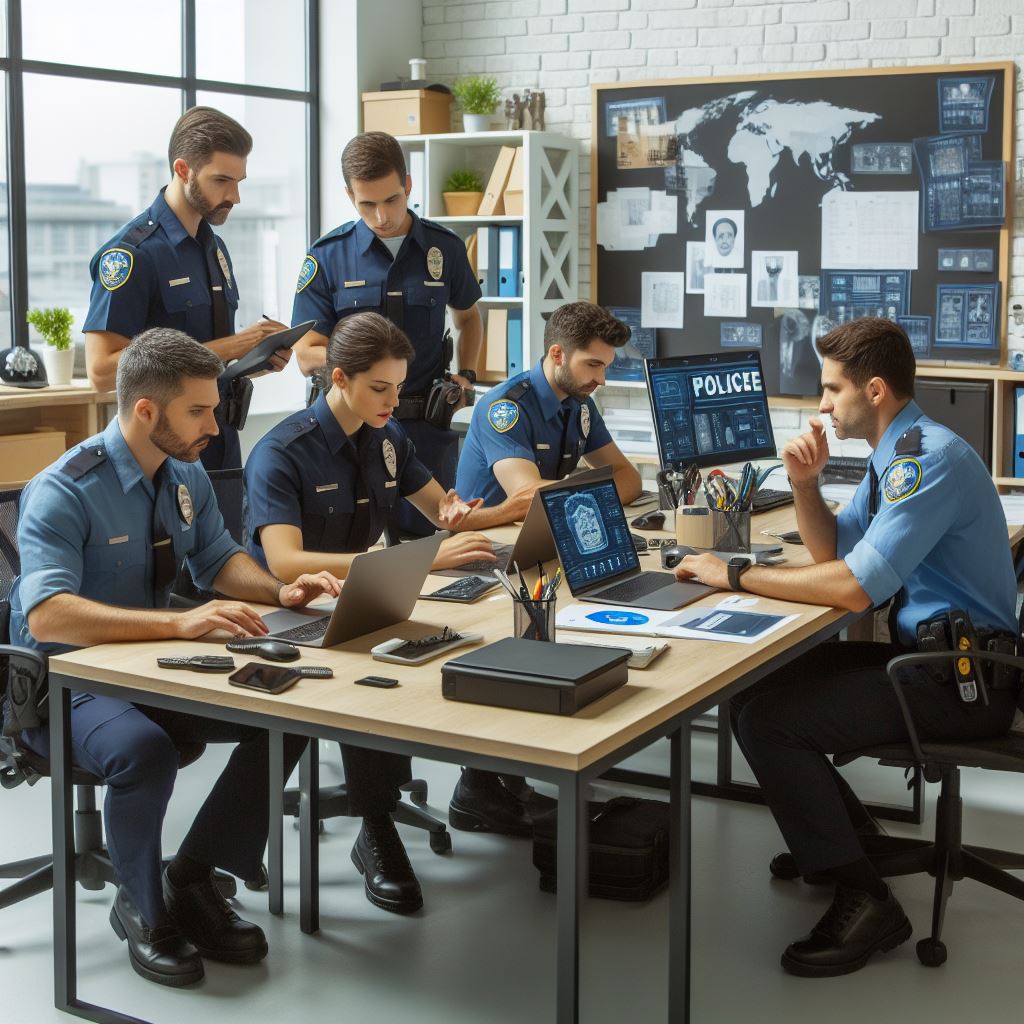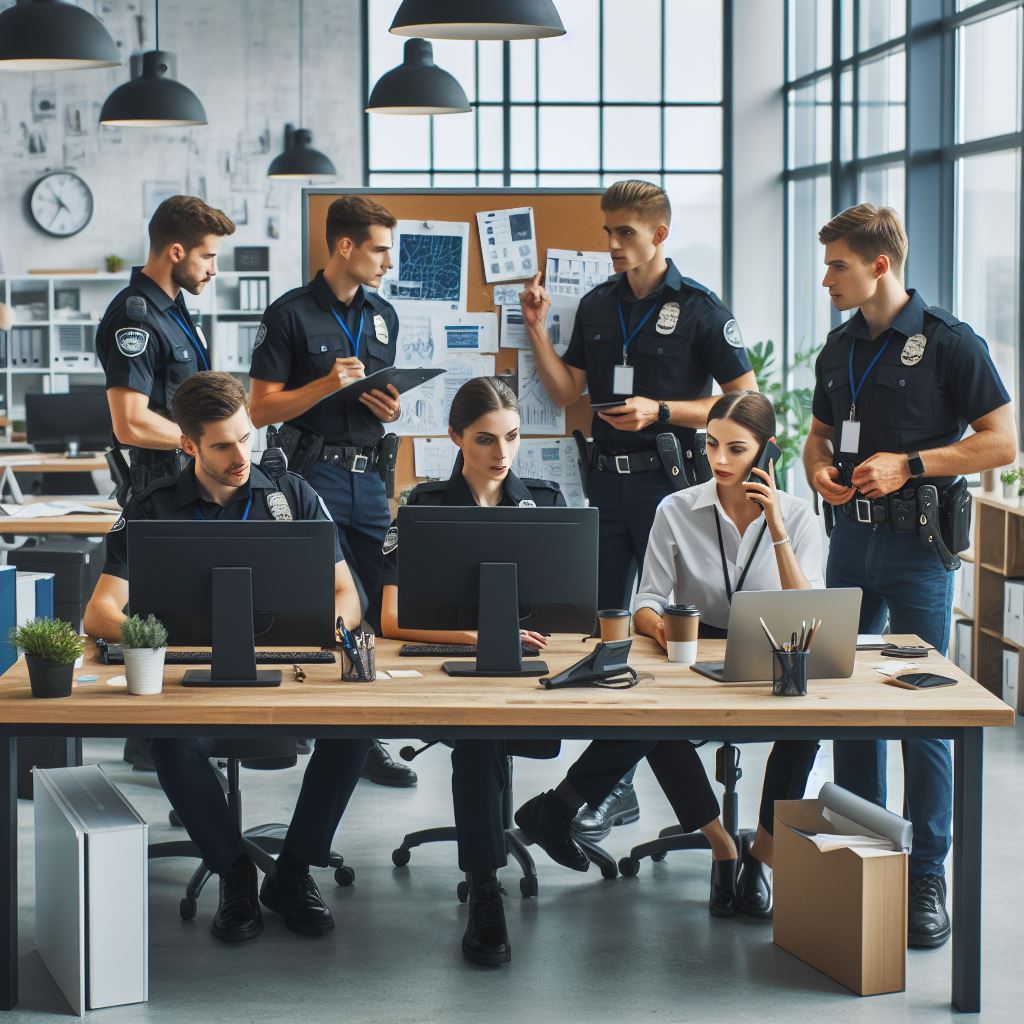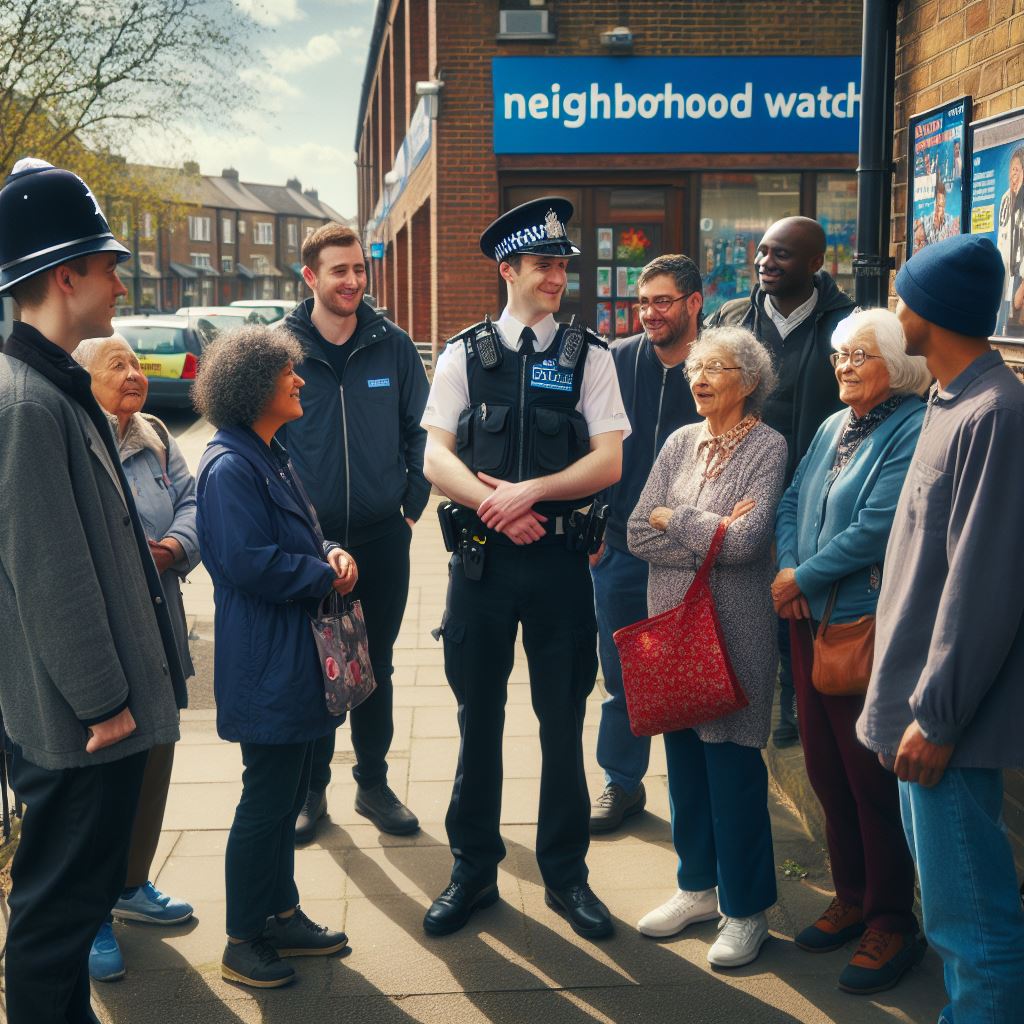Introduction
UK diplomats play a crucial role in representing and advancing the interests of the United Kingdom abroad. Their work involves fostering relationships, promoting trade, and ensuring national security.
UK diplomats face a myriad of challenges while representing their country abroad.
One significant obstacle is navigating the complex landscape of international relations, where geopolitical tensions, shifting alliances, and global conflicts can create diplomatic minefields.
Additionally, diplomats must contend with the ever-evolving nature of diplomacy in the modern world, marked by the rapid pace of technological advancements and the emergence of new global threats.
Brief role of UK diplomats abroad
UK diplomats abroad play a pivotal role in shaping international relations, representing the nation’s interests in foreign countries.
They engage with host governments, international organizations, and local communities, fostering ties and promoting British values.
Serving as primary channels of communication, diplomats navigate international relations, advancing bilateral and multilateral agreements.
Negotiating treaties, trade deals, and resolving disputes demand a nuanced understanding of political, economic, and cultural dynamics.
Economic diplomacy is key; diplomats actively promote British trade and investment opportunities, cultivating relationships to facilitate agreements and stimulate economic cooperation.
Security is paramount; diplomats work closely with local authorities, addressing threats to UK citizens abroad and safeguarding missions.
Cultural diplomacy involves understanding diverse cultures, serving as ambassadors to foster mutual understanding and build bridges between nations.
In global challenges, diplomats coordinate international responses in diplomatic forums, showcasing the UK’s commitment to cooperation.
Overall, their role extends beyond traditional diplomacy, encompassing diverse responsibilities.
Diplomats advance UK interests, navigating challenges, fostering economic ties, ensuring security, and enhancing cultural understanding for stability.
They serve as official representatives, promoting diplomatic relations and implementing UK foreign policy in embassies and consulates to maintain close ties with host countries.
Importance and challenges of diplomatic work
The work of UK diplomats is essential as they safeguard British citizens and businesses overseas, negotiating agreements, and shaping international policies. However, they face numerous challenges.
One challenge is ensuring effective communication between different cultures, languages, and political systems. Diplomats must navigate complex relationships and find common ground to address global issues.
Maintaining national interests is another challenge, as diplomats must balance between advancing UK priorities while respecting host countries’ perspectives. This delicate balancing act can be demanding.
Diplomats face security risks, especially in unstable regions, where their safety can be compromised. They must navigate these risks and ensure the welfare of staff and their families.
Diplomats face challenges adapting to the changing global landscape, including new technologies, cyber warfare, and non-traditional security issues like climate change and pandemics.
In a nutshell, UK diplomats abroad have a vital role in promoting British interests, fostering relationships, and tackling global issues.
However, their work is not without challenges, including cultural differences, balancing national interests, ensuring security, and adapting to a rapidly changing world.
Language and Cultural Barriers
Language and cultural barriers pose significant challenges for UK diplomats abroad. Effective communication and understanding are essential in diplomacy.
Cultural sensitivity and language proficiency are crucial for diplomats to establish trust and build strong relationships.
Diplomats may struggle with understanding local customs, traditions, and nuances, leading to misunderstandings.
Personalized UK Career Consulting
Receive tailored career guidance designed just for you. Get actionable steps and expert support to boost your career in 1-3 days. Take control of your career now.
Get StartedLanguage challenges, such as the inability to speak the local language fluently, can hinder effective communication.
Cultural differences in non-verbal communication, such as gestures and body language, can lead to misinterpretations.
Misunderstanding cultural norms and etiquette can result in unintentional offense or damage to diplomatic relations.
Diplomats must be knowledgeable and respectful of cultural sensitivities, with a keen awareness of social hierarchies.
Language barriers can impede conveying intentions accurately, risking miscommunication and strained diplomatic relationships.
Misinterpretation of idiomatic expressions or colloquialisms can lead to misunderstandings or unintended meanings.
UK diplomats may face challenges when trying to navigate through complex diplomatic negotiations due to language barriers.
Cultural sensitivity and language proficiency for effective diplomacy
Understanding local cultural practices and customs is vital in ensuring effective dialogue and successful diplomacy.
Cultural awareness allows diplomats to adapt their communication style and approach to fit the local context.
In some cases, diplomats may need to engage professional interpreters to overcome language barriers during official meetings.
Being sensitive to cultural differences can prevent unintentional offense and facilitate more productive and respectful discussions.
Diplomats must invest time and effort in learning the local language to better engage with the host country’s officials and citizens.
The ability to speak the local language can demonstrate commitment and respect to the host country’s culture.
Diplomats should attend cultural orientation programs to enhance their understanding of the host country’s customs and values.
Failure to overcome language and cultural barriers can hinder negotiations, leading to missed opportunities for collaboration.
Your Dream Job Starts with a Perfect CV
Get a tailored CV and cover letter that captures your unique strengths and stands out in your industry. Let us help you make an unforgettable first impression.
Get StartedIn certain regions, diplomats may encounter challenges related to gender roles or religious differences, further complicating diplomatic interactions.
Language proficiency enables diplomats to accurately convey their government’s positions and understand the concerns of the host country.
Miscommunication caused by language barriers can often be amplified in sensitive diplomatic matters with high stakes.
Cultural sensitivity allows diplomats to navigate delicate issues such as human rights or political controversies more effectively.
Understanding the host country’s cultural context can facilitate collaborative problem-solving and conflict resolution.
Diplomats who invest in language learning and cultural understanding are more likely to earn respect and trust from their counterparts.
In review, language and cultural barriers pose significant challenges for UK diplomats abroad. Effective communication, cultural sensitivity, and language proficiency are crucial for successful diplomacy.
Diplomats should strive to overcome these challenges to foster strong relationships and achieve diplomatic objectives effectively.
Political and Geopolitical Challenges
Diplomats are trained to navigate intricate political terrains when representing the UK abroad. The diverse political landscapes in different countries make their job strenuous yet essential.
They encounter a wide range of political ideologies and systems that shape the countries they are posted in.
When faced with political challenges, diplomats must act as mediators and advisors. They play a vital role in negotiating diplomatic relations and agreements, especially in volatile situations.
Their ability to foster dialogue and encourage peaceful resolutions can make a significant impact on international relations and stability.
Diplomacy is the cornerstone of maintaining peaceful relations between nations and resolving conflicts without resorting to violence.
It enables governments to engage in constructive dialogue, negotiate, and find common ground. Diplomats act as intermediaries, working towards mutual understanding and cooperation.
Optimize Your LinkedIn for Success
Boost your LinkedIn profile with a professional bio, keyword-rich headline, and strategic recommendations that attract recruiters. Stand out from the crowd and get noticed.
Optimize NowPolitical and geopolitical challenges faced by UK diplomats
One example of a political challenge faced by UK diplomats is the ongoing conflict in the Middle East.
Diplomats in the region navigate complex relationships, addressing sensitive issues such as religious differences, security concerns, and conflicting national interests.
Geopolitical challenges pose significant obstacles; diplomats must consider ever-evolving dynamics shaping international relations.
Shifts in power, territorial disputes, and economic rivalries impact efforts, requiring nuanced strategies.
For UK diplomats in Eastern Europe, balancing relationships with neighboring countries is a challenge, particularly post-Russia’s annexation of Crimea.
They navigate supporting sovereignty, protecting national interests, and maintaining cordial relationships.
Brexit presents unique challenges.
Negotiating the UK’s departure from the EU demands sophisticated diplomacy to safeguard interests while maintaining relationships with EU member states.
Despite challenges, diplomacy remains crucial.
Effective diplomacy can prevent conflicts, foster cooperation, and facilitate mutual growth.
UK diplomats play a vital role in navigating political and geopolitical landscapes, ensuring the country’s voice is heard, and its interests protected.
UK diplomats abroad navigate political challenges, negotiate agreements in volatile situations, and manage geopolitical dynamics.
Diplomacy is crucial for international peace.
UK diplomats navigate challenges to promote understanding, cooperation, and peaceful relations for the country they represent.
Read: Interview Tips for UK Civil Service
Security Risks
Address the inherent risks faced by diplomats in certain countries or regions
Diplomats face many challenges when carrying out their duties abroad, and one of the most critical concerns is security.
In certain countries or regions, diplomats are exposed to inherent risks that can jeopardize their safety and the interests of their home country.
Security protocols and measures play an indispensable role in ensuring the well-being and security of UK diplomats.
These measures are implemented to mitigate risks and protect diplomats from potential threats they may encounter during their missions.
The importance of security protocols and measures for the safety of UK diplomats
One of the most significant security challenges diplomats may face is the constant threat from hostile actors.
These individuals or groups may target diplomats with the intention of causing harm, whether through physical attacks or psychological intimidation.
Terrorist organizations, separatist movements, and criminal gangs are examples of groups that may pose a threat to diplomats.
Specific security challenges diplomats may encounter, such as threats, attacks, or kidnappings
Their motivations can range from political objectives to financial gain, with the potential to cause significant harm to both individuals and the diplomatic mission itself.
Kidnappings are another security challenge that diplomats must be vigilant about.
Criminal organizations or terrorists may attempt to capture diplomats in order to pressure their home country or as a means of obtaining ransom or concessions.
The role of diplomatic immunity in protecting diplomats
Diplomatic immunity plays a crucial role in protecting diplomats from harm or persecution by granting legal privileges and dissuading potential assailants.
However, diplomatic immunity isn’t absolute; serious cases or crimes may lead host countries to waive it and prosecute diplomats under domestic laws.
To maintain harmonious relationships, diplomats must adhere to the laws and regulations of their host country.
Mitigating risks requires proactive security measures. Diplomatic missions employ trained security personnel to assess threats and ensure diplomats’ safety.
Embassies and consulates implement security mechanisms such as secure facilities, surveillance systems, and access controls.
Diplomats receive briefings on security protocols and emergency procedures to enhance their preparedness to respond effectively to potential threats.
Collaboration with host country security forces is crucial. Diplomatic missions and authorities work together to share intelligence, coordinate security efforts, and respond effectively to risks.
Building strong relationships with local law enforcement is essential for diplomat safety and security.
Security risks faced by UK diplomats abroad are a significant concern.
Addressing these challenges requires a comprehensive approach, including robust security protocols, diplomatic immunity, proactive measures, and cooperation with host country authorities.
Prioritizing diplomat safety ensures the successful execution of diplomatic missions and safeguards national interests.
Read: Salary and Benefits of a UK Diplomat Revealed

Representing UK Interests
- Diplomats are responsible for representing and promoting UK interests abroad.
- They act as the face of the country and are tasked with building positive relationships with foreign nations.
- This includes advocating for policies and positions that benefit the UK in international discussions.
Difficulties in Balancing Values and Interests
- Diplomats often find themselves in a difficult position when trying to balance their own personal values and interests with those of the UK.
- They must set aside personal biases and beliefs in order to effectively represent and promote the interests of their country.
- This can be challenging, especially when faced with conflicting views or cultural differences in the host country.
Challenges in Meeting Economic, Political, and Cultural Goals
- One of the major challenges for UK diplomats is ensuring that the country’s economic, political, and cultural goals are met in international negotiations.
- Economically, diplomats work towards securing beneficial trade agreements and attracting foreign investments.
- Politically, they aim to advance UK’s agenda and influence decisions that affect the country’s global standing.
- Culturally, diplomats promote British arts, language, and education, fostering cultural exchange and understanding.
Managing Country Relationships
- Diplomats must navigate complex relationships with host countries and their governments.
- They need to foster trust, understanding, and cooperation while also addressing any areas of disagreement or conflict.
- Building strong relationships with local stakeholders, such as businesses, civil society organizations, and media, is also crucial.
Maintaining National Security
- Diplomats play a key role in maintaining national security by gathering intelligence and collaborating with local authorities.
- They work closely with the host government to address common security challenges, such as terrorism, cyber threats, and organized crime.
- Protecting the safety and well-being of British citizens abroad is another critical aspect of their work.
Navigating International Crises
- During times of crisis, diplomats face the challenge of managing international tensions and ensuring the safety of UK citizens.
- They must effectively communicate with local authorities and coordinate with other diplomatic missions to find peaceful resolutions.
- These crises can range from natural disasters and political upheavals to human rights abuses and armed conflicts.
Adapting to Changing Global Dynamics
- The rapidly changing global landscape poses a constant challenge for UK diplomats.
- They need to stay abreast of emerging geopolitical trends, technological advancements, and evolving international norms.
- This requires continuous learning, strategic foresight, and adapting diplomatic approaches to new contexts.
Being a UK diplomat is a demanding and multifaceted role that involves representing national interests, managing complex relationships, and navigating challenging global dynamics.
From balancing personal values with national interests to finding resolutions in times of crisis, diplomats face a wide range of challenges.
However, their work is essential in promoting UK’s influence, advancing its goals, and safeguarding its citizens around the world.
Read: Languages and Diplomacy: A UK Diplomat’s Guide
Gain More Insights: Retirement Plans of UK Politicians Explored
Emotional and Psychological Toll
Diplomatic work, while prestigious, comes with its own set of challenges that can take a toll on individuals both emotionally and psychologically.
The Psychological Impact of Diplomatic Work on Individuals
The nature of diplomatic work often exposes individuals to high levels of stress and pressure. These factors can contribute to the psychological impact on diplomats, affecting their mental well-being.
One of the primary psychological challenges faced by diplomats is the constant need to navigate complex international relationships.
Their actions and decisions can have far-reaching consequences, raising the stakes and intensifying the pressure they experience.
Additionally, diplomats often find themselves in challenging and unpredictable environments, where they may be exposed to conflict, violence, and humanitarian crises.
These circumstances can contribute to the development of anxiety, post-traumatic stress disorder (PTSD), and other mental health issues.
Discuss the Emotional Challenges Diplomats Face
Living away from home and family can be emotionally challenging for diplomats. They are often stationed in foreign countries for extended periods of time, leading to a sense of isolation and loneliness.
The strain of being away from loved ones, missing important family events, and the constant need to adapt to new cultures and languages can contribute to feelings of homesickness and emotional instability.
Moreover, diplomats are often required to address sensitive and contentious issues, representing their home country’s interests in negotiations and meetings.
This responsibility can place a heavy emotional burden on diplomats, as they navigate diplomatic protocols and maintain a professional demeanor in high-pressure situations.
Address the Potential for Burnout and Mental Health Issues
Due to the demanding and stressful nature of their job, diplomats are at risk of experiencing burnout, a state of emotional, mental, and physical exhaustion.
The long hours, constant travel, and high-stakes negotiations can lead to chronic stress, which, if left unmanaged, can negatively impact their mental health.
Depression, anxiety disorders, and substance abuse are all potential consequences of prolonged exposure to stress.
Moreover, diplomats often face limited access to mental health resources, as they may be stationed in countries with underdeveloped healthcare systems or face stigma surrounding mental health.
This lack of support exacerbates the risk of mental health issues going unrecognized and untreated.
Recognizing the psychological challenges diplomats face and prioritizing mental health support within diplomatic communities is crucial.
Providing access to counseling services, promoting work-life balance, and fostering a supportive work environment can mitigate the emotional and psychological toll on diplomats.
In a nutshell, the emotional and psychological toll on diplomats is a significant challenge in the field of diplomatic work.
Addressing these challenges is essential for the well-being of individuals who serve as important representatives of their countries abroad.
Read: UK Civil Service Pension Schemes
Learn More: Paths to Power: How UK Politicians Start Out
Conclusion
In closing, UK diplomats face numerous challenges while serving abroad.
These challenges include navigating complex political landscapes, ensuring national security, handling cultural differences, and managing various crises.
Despite these hurdles, diplomacy remains crucial in maintaining international relations and promoting peace.
The work of diplomats is essential in ensuring the well-being and reputation of the UK on the global stage.
They play a vital role in representing the country’s interests, negotiating agreements, and building alliances.
Without their efforts, international conflicts could escalate, trade relations would suffer, and people’s safety would be compromised.
Therefore, it is important to appreciate and support the dedicated men and women serving as UK diplomats.
Their tireless work helps safeguard the nation’s interests and promote diplomacy as a tool for resolving disputes.
Diplomats deserve recognition for their commitment to upholding values and fostering cooperation between nations.
Let us acknowledge the challenges faced by UK diplomats abroad, and let us express our gratitude for their unwavering dedication.
They play a crucial role in shaping international relations and working towards a more peaceful and prosperous world.
Their efforts deserve our appreciation and continued support.
[E-Book for Sale]
500 Cutting-Edge Tech Startup Ideas for 2024 & 2025: Innovate, Create, Dominate
$19.99 • 500 Tech Startup Ideas • 62 pages
You will get inspired with 500 innovative tech startup ideas for 2024 and 2025, complete with concise descriptions to help you kickstart your entrepreneurial journey in AI, Blockchain, IoT, Fintech, and AR/VR.




